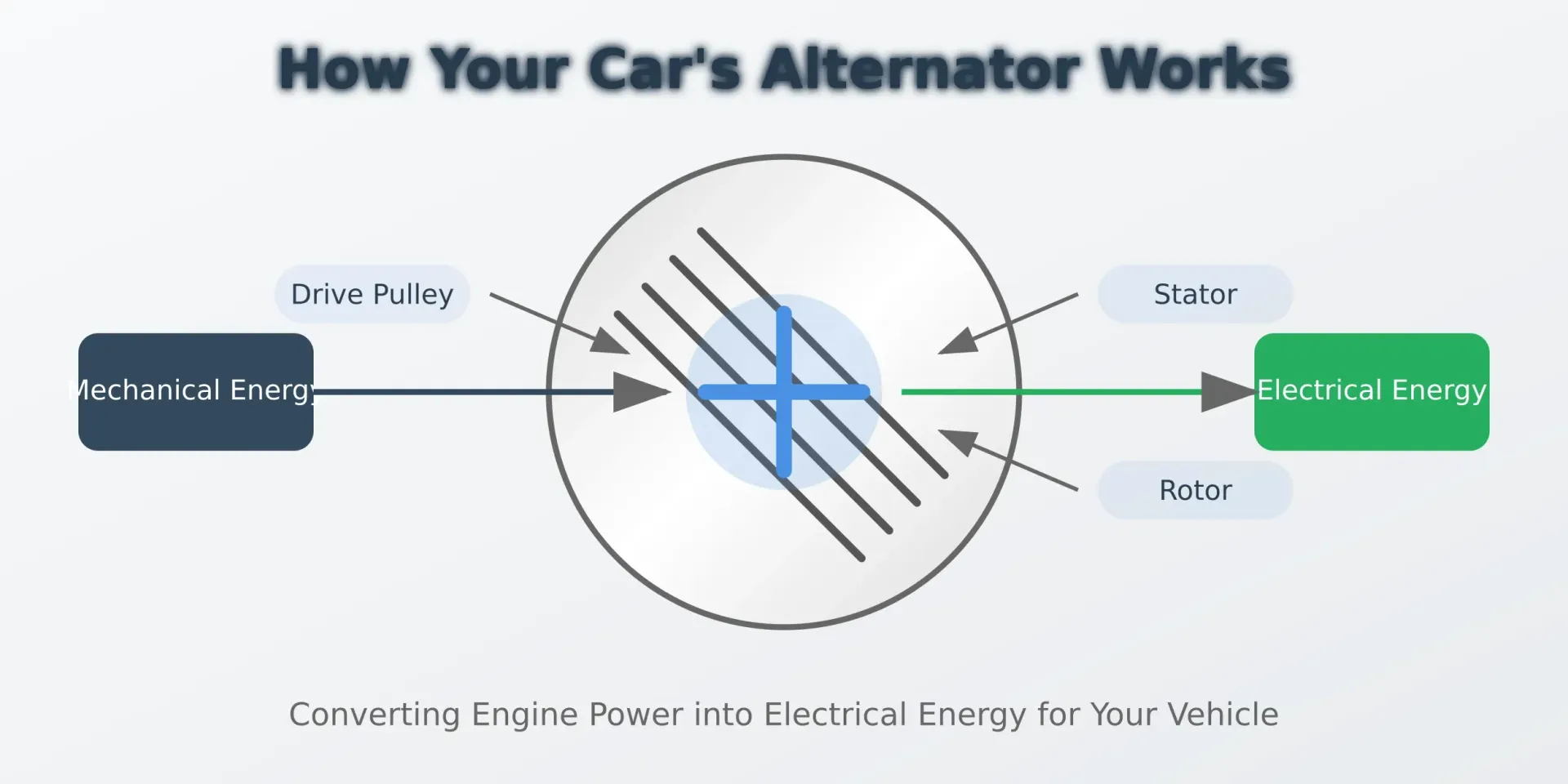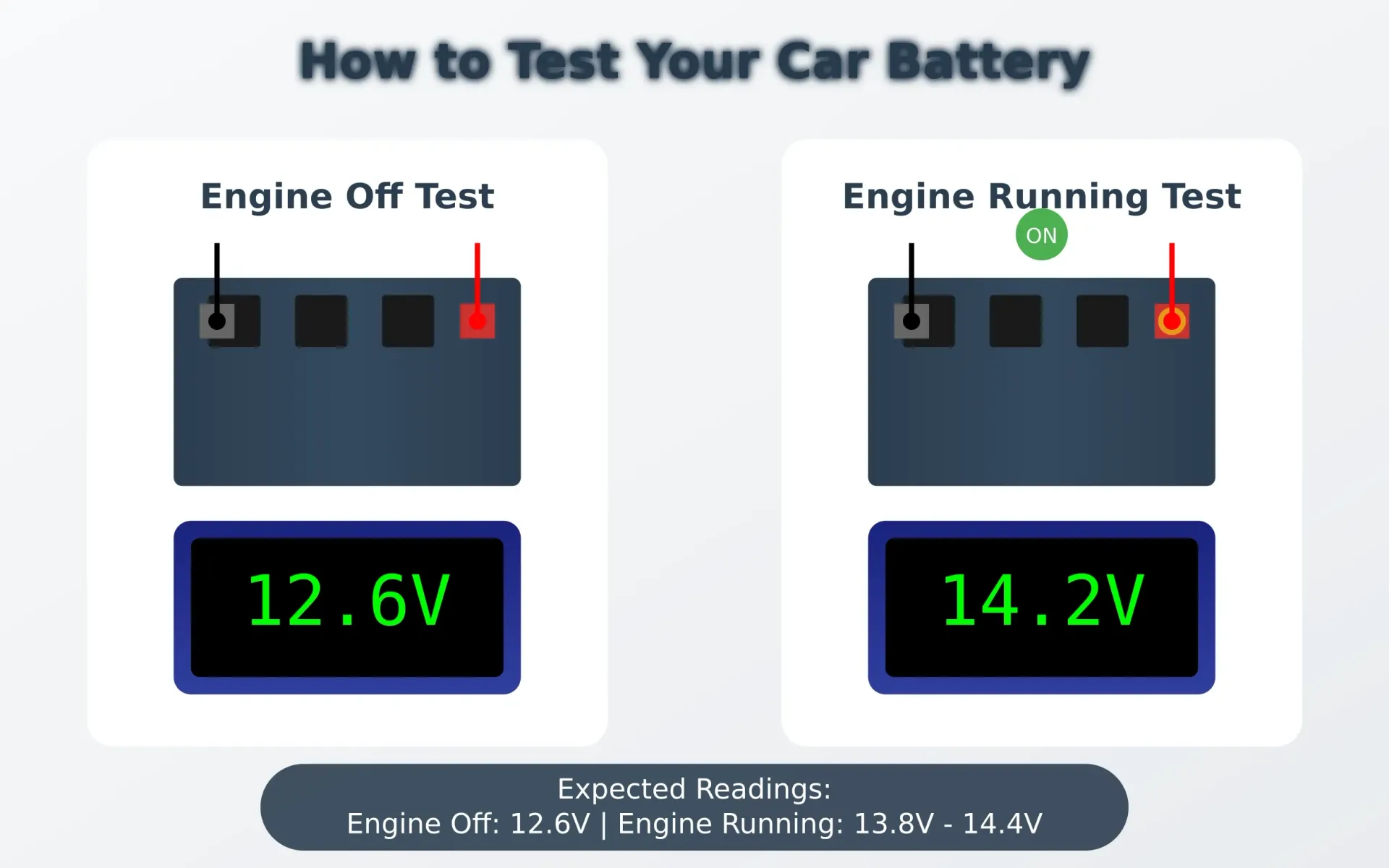How to Test if Alternator is Bad: A Complete DIY Diagnostic Guide
Have you ever been stranded with a car that won't start, wondering how to test if alternator is bad? That sinking feeling when your car struggles to turn over isn't just frustrating – it could be a sign of alternator troubles. As a seasoned automotive writer with years of experience diagnosing electrical systems, I'm here to guide you through the process of identifying alternator issues before they leave you stuck on Chicago's busy streets.

Understanding Your Alternator's Role
Before diving into testing methods, let's understand what your alternator actually does. Think of your alternator as your car's power plant – it converts mechanical energy from the engine into electrical energy that charges your battery and powers your vehicle's electrical systems. When it fails, everything from your headlights to your radio can be affected.
Warning Signs You Shouldn't Ignore
The first step in learning how to test for a bad alternator is recognizing the warning signs. Dim or flickering headlights often tell a story – they're usually the first indication that your alternator isn't producing enough power. You might notice your dashboard lights becoming unusually bright or dim, or your battery warning light illuminating. Even strange burning smells or unusual noises could signal alternator problems.
The Dashboard Light Test
One of the simplest ways how to test if your alternator is bad starts right at your dashboard. When you turn the key to the "ON" position (without starting the engine), your battery warning light should illuminate. Once you start the engine, this light should turn off. If it stays on, this could indicate your alternator isn't charging properly.
The Battery Voltage Test
To determine how to test if alternator is charging, you'll need a multimeter – an essential tool for any car owner. With the engine off, measure your battery's voltage. A healthy battery should show around 12.6 volts. Now start your engine and measure again. If your alternator is working correctly, you should see a reading between 13.8 and 14.4 volts. Anything significantly lower suggests your alternator might not be charging effectively.
The Professional Touch
While DIY testing can be informative, sometimes you need expert eyes on the problem. That's where Austin Auto Repair comes in. Located in the heart of Chicago, they've built a reputation for honest diagnostics and reliable repairs. Our technicians use advanced diagnostic equipment to precisely determine how to test if alternator is working and identify any underlying issues that might be affecting your vehicle's electrical system.
Real-World Performance Testing
One often overlooked method involves testing your alternator under real-world conditions. Start your car and turn on all electrical accessories – headlights, radio, air conditioning, and heated seats if you have them. A healthy alternator should maintain proper voltage even under this increased load. If your engine starts struggling or your lights dim significantly, your alternator might be failing to keep up with demand.
The Temperature Factor
Chicago's extreme weather conditions can particularly stress your alternator. During bitter winters, when your battery is already working harder, a failing alternator can be especially problematic. Similarly, summer heat can accelerate wear on alternator components. According to the American Automobile Association (AAA), alternator failures are among the top causes of winter breakdowns in the Midwest.

Prevention and Maintenance
Regular maintenance can help you avoid alternator issues altogether. The Car Care Council recommends having your vehicle's electrical system checked at least annually. This preventive approach is particularly important for Chicago drivers dealing with harsh environmental conditions that can accelerate wear on automotive components.

Taking Action
If your tests suggest alternator problems, don't wait until you're stranded. The expert technicians at Austin Auto Repair can perform comprehensive diagnostic testing and provide transparent recommendations for repairs. Their commitment to quality service has made them a trusted name among Chicago's vehicle owners, from daily commuters to family car owners.
When to Seek Professional Help
While understanding how to test your alternator is valuable, certain situations demand professional attention. If you notice multiple electrical systems failing, hear grinding noises from your engine bay, or experience repeated battery deaths, it's time to consult an expert. According to Edmunds, attempting to drive with a failing alternator can potentially damage other electrical components in your vehicle.
The Path Forward
Remember, your
alternator is crucial to your vehicle's operation. By understanding these testing methods and recognizing warning signs early, you can avoid costly repairs and inconvenient breakdowns. Whether you're confident in DIY diagnostics or prefer professional assistance, the key is acting promptly when you suspect alternator issues.
Ready to ensure your alternator is performing optimally? Don't wait until you're stranded on Lake Shore Drive or stuck in rush hour traffic.
Contact Austin Auto Repair today for a
comprehensive alternator diagnostic. Our experienced technicians will ensure your vehicle's electrical system is ready to handle everything Chicago's roads can throw at it.





